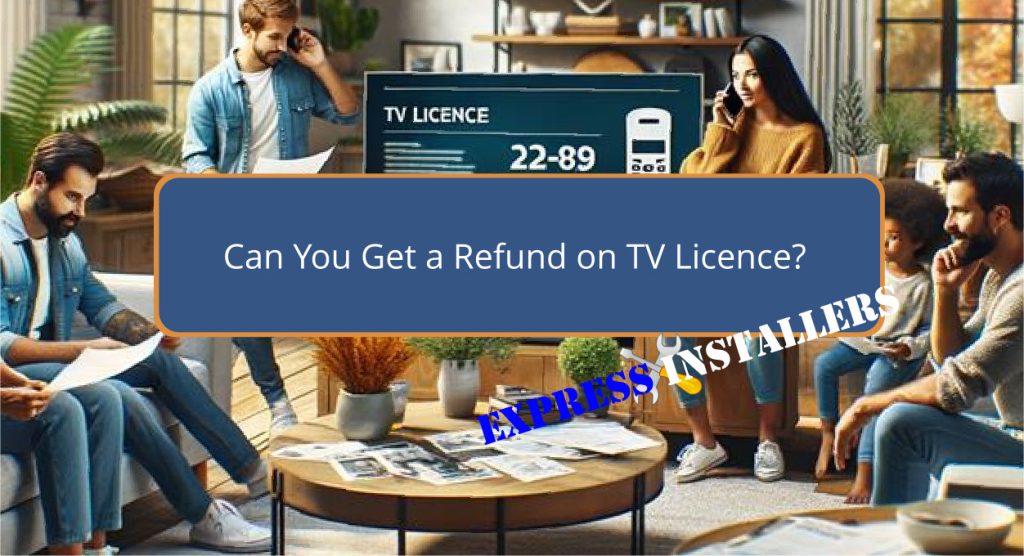
Yes, you can obtain a refund on your TV Licence if you meet certain conditions. Eligibility for a refund requires having at least one full unused month left on the TV Licence.
Start the refund process by completing the online form on the TV Licensing website, ensuring you have the appropriate documentation, such as proof of address and licence details.
The refund, calculated based on the number of full remaining months, is usually processed within 21 days and can be issued via cheque or BACS transfer.
Compliance with these steps enables equitable treatment and maximises the efficiency of the refund process.
Further insights will enhance your understanding of the complete process and its nuances.
Quick Summary
- You must have at least one full unused month on your TV Licence to be eligible for a refund.
- Refunds are calculated based on the number of unused months, up to 11 months.
- Complete the online refund form on the TV Licensing website to apply.
- Refund processing typically completes within 21 days, with payment via cheque or BACS transfer.
- Individuals over 75 or visually impaired can claim a refund if their licence expired under two years ago.
Eligibility Criteria for Refunds
To qualify for a refund on your TV Licence, you must have at least one full unused month remaining before its expiration.
Understanding the refund eligibility and process is important for those who find themselves no longer requiring the TV Licence.
The refund amount is calculated based on the unused months, offering flexibility from 1 to 11 months, which aligns with the date of cancellation.
Special considerations are extended to individuals over 75 or those who are visually impaired, who are eligible for a refund at any time, provided their licence expired less than two years ago.
This policy guarantees that all individuals have a fair opportunity to claim a refund, promoting equitable treatment across diverse circumstances.
Steps to Apply for Refund
Applying for a refund on your TV Licence involves a straightforward process that begins with completing the online form available on the TV Licensing website.
Once you ascertain your refund eligibility—having at least one full unused month on your licence—you can initiate the refund process.
The amount you receive back will depend on how many full months are left, ranging from one to eleven months.
After submitting your request, the typical timeline for the refund process completion is within 21 days.
Payments are conveniently issued either via cheque or BACS transfer, providing flexibility in how you receive your funds.
This process is designed to be user-friendly, ensuring that eligible individuals can reclaim their funds efficiently.
Required Documentation

Gathering the necessary evidence, such as proof of address and licence details, is an important step in securing a refund for your TV Licence.
To facilitate a smooth refund process, it is essential to submit accurate and complete documentation that aligns with the criteria set by TV Licensing.
This includes ensuring that all forms are filled out meticulously and any supporting evidence, like identity verification or proof of no longer requiring the license, is clearly legible and pertinent.
The document submission phase is vital; any discrepancies or incomplete information can delay or even invalidate your refund claim.
Therefore, adhering to the guidelines provided and double-checking your submissions can greatly enhance the efficiency of your refund request.
Processing Time and Methods
Once your documentation is submitted, TV Licence refunds are generally processed within 21 days, utilising methods such as cheque or BACS transfer based on your specified preference.
This efficiency guarantees that your refund is handled swiftly.
It’s important to understand that refund calculation is directly tied to the remaining duration on your licence, with eligibility requiring at least one full month before its expiration date.
Different payment options cater to various needs, offering flexibility.
However, be aware of potential refund delays that might occur due to processing issues or errors in application forms.
Typically, refunds can cover any period from one to eleven months, depending on how much time is left before your TV Licence expires, providing a proportional return on your initial payment.
Special Cases: Students and Older People

Understanding the specific requirements for TV Licence refunds, students and older people encounter unique conditions tailored to their circumstances.
Students, for instance, need a TV Licence in their university rooms but might qualify for student exemptions if using only battery-powered devices that aren’t plugged into an aerial or mains.
Older people particularly those over 75 and receiving Pension Credit, benefit from older people discounts, receiving free TV Licences.
| Group | Key Benefit | Application Process |
|---|---|---|
| Students | Student Exemptions | Evidence of student status |
| Older people | Older people Discounts | Online or phone application |
| Refund Eligibility | Available at any time | Proof of age or Pension Credit |
The refund conditions and application process are straightforward but require timely submission of relevant documentation.
Impact of Sharing Households
In shared households, the necessity for each individual to possess a separate TV Licence, if they have individual tenancy agreements and watch TV in their private rooms, highlights the importance of understanding license rules to avoid legal penalties.
The financial implications of this arrangement can be significant, especially in a setup where multiple tenants could unintentionally assume a single licence covers everyone.
Each person is accountable for their own compliance, which can accumulate in terms of cost but guarantees legality.
It is essential for tenants to familiarise themselves with these legal considerations, as ignorance of the law does not exempt one from penalties.
Proper knowledge and adherence to these rules safeguard all parties from potential fines and legal repercussions.
Addressing Common Concerns

Addressing common concerns about TV Licence refunds, it is important to note that eligibility and processes are clearly defined, ensuring transparency and fairness in the application.
To be eligible for a refund, a licence holder must have at least one full unused month remaining on their licence. The refund amount is then calculated based on the number of unused months.
Although the refund process is designed to be straightforward, complications can arise if the required evidence is not adequately provided or if application details are incorrect.
Typically, the process takes up to 21 days, with payments made via cheque or BACS transfer. This system facilitates a smooth shift during license renewal, minimising potential financial and administrative burdens for the license holder.
Frequently Asked Questions
How Do I Get a Refund on My TV Licence UK?
To obtain a refund on your UK TV Licence, verify your refund eligibility and then initiate the application process, ensuring you have at least one full unused month remaining on the licence.
What Happens if I Cancel My TV Licence?
Upon cancellation of your TV Licence, you may be eligible for a refund. To qualify, at least one full month must remain on the licence, with the refund amount depending on the unused duration.
Can I Cancel My TV Licence If I Only Watch Netflix?
Yes, you can cancel your TV Licence if you only watch Netflix, as it solely involves subscription models and streaming rights, independent of traditional broadcast requirements that necessitate a TV Licence.
Is It Illegal Not to Pay Your TV Licence?
Yes, it is illegal not to pay your TV licence if you are watching live television or using BBC iPlayer, leading to potential legal consequences enforced through fines and other enforcement methods.
Conclusion
In summary, understanding the eligibility criteria for TV license refunds is essential for effective financial management.
Applicants must adhere to specific procedures and provide appropriate documentation to facilitate the processing of their requests.
Special considerations exist for students and older people, underscoring the need for tailored approaches to different demographic groups.
Awareness and adherence to the stipulated guidelines can greatly streamline the refund process, benefiting individuals in shared households and addressing prevalent concerns efficiently.
